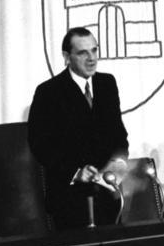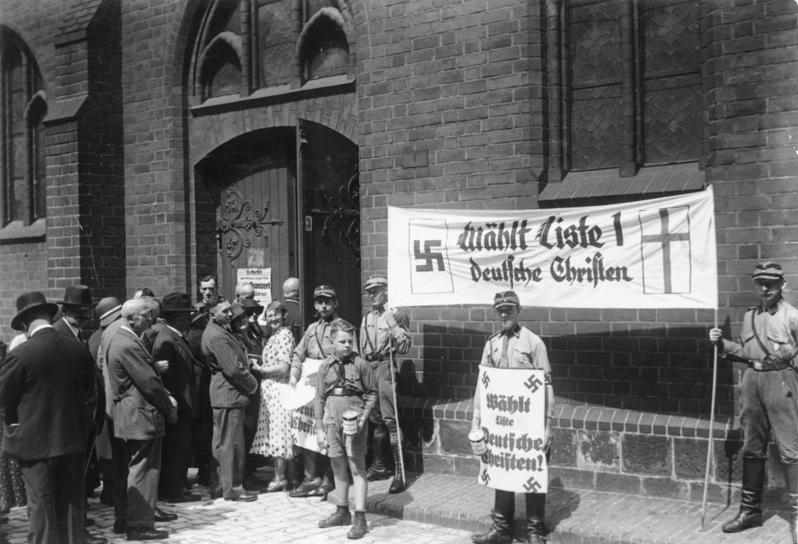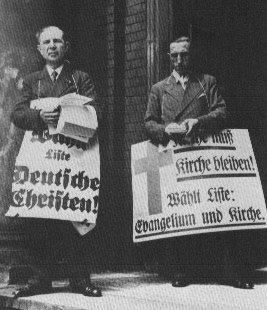|
Eugen Gerstenmaier
Eugen Karl Albrecht Gerstenmaier (25 August 1906 – 13 March 1986, in Oberwinter) was a German Evangelical theologian, resistance fighter in the Third Reich, and a CDU politician. From 1954 to 1969, he served as President of the Bundestag. With a tenure of over 14 years, he is, as yet, the longest serving presiding officer of the German parliament and also the only person to preside over the Bundestag during four legislative periods (the 2nd, 3rd, 4th, and 5th Bundestag). Life, career, resistance Gerstenmaier was born in Kirchheim unter Teck. After training as a salesman, Gerstenmaier did his ''Abitur'' and then studied philosophy, German language and literature, and Evangelical theology in Tübingen, Rostock and Zurich. In 1934, he was detained for a short time for being a member of the Confessing Church. In 1935, he became Theodor Heckel's assistant in the German Evangelical Church's office for outside affairs. After the Munich Conference in 1938, Gerstenmaier joined the ... [...More Info...] [...Related Items...] OR: [Wikipedia] [Google] [Baidu] |
President Of The Bundestag
The president of the Bundestag (german: Präsident des Deutschen Bundestages or ) presides over the sessions of the Bundestag, the federal parliament of Germany, with functions similar to that of a speaker in other countries. In the German order of precedence, the office is ranked second after the president and before the chancellor. The current office-holder is Bärbel Bas (SPD), who was elected during the first session of the 20th Bundestag on 26 October 2021. Election and customs The president of the Bundestag is elected during the constituent session of each election period after the federal elections or in a later session, if the office has fallen vacant, by all members of the Bundestag. The president has to be a member of the Bundestag. Until the election of the president, the session is chaired by the father of the House, the so-called ''Alterspräsident''. Since 2017, this has been the longest serving member of the Bundestag; in 1949-2017, it was the oldest member of ... [...More Info...] [...Related Items...] OR: [Wikipedia] [Google] [Baidu] |
Kirchheim Unter Teck
Kirchheim unter Teck ( Swabian: ''Kircha'') is a town in Baden-Württemberg, Germany, in the district of Esslingen. It is located on the small river Lauter, a tributary of the Neckar. It is 10 km (6 miles) near the Teck castle, approximately southeast of Stuttgart. It is the fourth city in the Esslingen district, forming a district centre for the surrounding communities. Since 1 April 1956, Kirchheim unter Teck has the status of Große Kreisstadt. The city forms a ''Verwaltungsgemeinschaft'' (administrative community) with the neighbouring municipalities Dettingen and Notzingen. Kirchheim unter Teck was also, for several centuries, seat of the Oberamt (Oa.) Kirchheim. Geography Kirchheim unter Teck is located in the foothills of the central Swabian ''Alb'', north of the Albtrauf escarpment and its foothills: the Teckberg, Breitenstein and Limburg. It is situated in the Lauter valley, at the confluence of the Lindach and several tributary streams with the Lauter. T ... [...More Info...] [...Related Items...] OR: [Wikipedia] [Google] [Baidu] |
Munich Conference
The Munich Agreement ( cs, Mnichovská dohoda; sk, Mníchovská dohoda; german: Münchner Abkommen) was an agreement concluded at Munich on 30 September 1938, by Nazi Germany, Germany, the United Kingdom, French Third Republic, France, and Fascist Italy (1922–1943), Italy. It provided "cession to Germany of the Sudeten German territory" of First Czechoslovak Republic, Czechoslovakia, despite the existence of a 1924 alliance agreement and 1925 military pact between France and the Czechoslovak Republic, for which it is also known as the Munich Betrayal (; ). Most of Europe celebrated the Munich agreement, which was presented as a way to prevent a major war on the continent. The four powers agreed to German occupation of Czechoslovakia, the German annexation of the Czechoslovak borderland areas named the Sudetenland, where more than three million people, mainly Sudeten Germans, ethnic Germans, lived. Adolf Hitler announced that it was his last territorial claim in Northern Europ ... [...More Info...] [...Related Items...] OR: [Wikipedia] [Google] [Baidu] |
German Evangelical Church
The German Evangelical Church (german: Deutsche Evangelische Kirche) was a successor to the German Evangelical Church Confederation from 1933 until 1945. The German Christians, an antisemitic and racist pressure group and ''Kirchenpartei'', gained enough power on boards of the member churches to be able to install Ludwig Müller to the office of ' in the 1933 church elections. The German Evangelical Church Confederation was subsequently renamed the German Evangelical Church. In 1934, the German Evangelical Church suffered controversies and internal struggles which left member churches either detached or reorganised into German Christians-led dioceses of what was to become a single, unified Reich Church compatible with Nazi ideology for all of Nazi Germany. In 1935, in wake of controversies and church struggles, the Ministry for Church Affairs removed Ludwig Müller and installed a committee headed by Wilhelm Zoellner to lead the confederation. As a result, the German Evangelica ... [...More Info...] [...Related Items...] OR: [Wikipedia] [Google] [Baidu] |
Theodor Heckel
Theodor is a masculine given name. It is a German form of Theodore. It is also a variant of Teodor. List of people with the given name Theodor * Theodor Adorno, (1903–1969), German philosopher * Theodor Aman, Romanian painter * Theodor Blueger, Latvian professional ice hockey forward for the Pittsburgh Penguins of the National Hockey League (NHL) * Theodor Burghele, Romanian surgeon, President of the Romanian Academy * Theodor Busse, German general during World War I and World War II * Theodor Cazaban, Romanian writer * Theodor Fischer (fencer), German Olympic épée and foil fencer * Theodor Fontane, (1819–1898), German writer * Theodor Geisel, American writer and cartoonist, known by the pseudonym Dr. Seuss * Theodor W. Hänsch (born 1940), German physicist * Theodor Herzl, (1860–1904), Austrian-Hungary Jewish journalist and the founder of modern political Zionism * Theodor Heuss, (1884–1963), German politician and publicist * Theodor Innitzer, Austrian Catholic car ... [...More Info...] [...Related Items...] OR: [Wikipedia] [Google] [Baidu] |
Confessing Church
The Confessing Church (german: link=no, Bekennende Kirche, ) was a movement within German Protestantism during Nazi Germany that arose in opposition to government-sponsored efforts to unify all Protestant churches into a single pro-Nazi German Evangelical Church. See drop-down essay on "Unification, World Wars, and Nazism" Demographics The following statistics (as of January 1933 unless otherwise stated) are an aid in understanding the context of the political and theological developments discussed in this article. *Number of Protestants in Germany: 45 million *Number of free church Protestants: 150,000 *Largest regional Protestant church: Evangelical Church of the Old Prussian Union (german: link=no, Evangelische Kirche der altpreußischen Union), with 18 million members, the church strongest in members in the country at the time. *Number of Protestant pastors: 18,000 **Number of these strongly adhering to the "German Christian" church faction as of 1935: 3000 **Number of the ... [...More Info...] [...Related Items...] OR: [Wikipedia] [Google] [Baidu] |
Rostock
Rostock (), officially the Hanseatic and University City of Rostock (german: link=no, Hanse- und Universitätsstadt Rostock), is the largest city in the German state of Mecklenburg-Vorpommern and lies in the Mecklenburgian part of the state, close to the border with Pomerania. With around 208,000 inhabitants, it is the third-largest city on the German Baltic coast after Kiel and Lübeck, the eighth-largest city in the area of former East Germany, as well as the 39th-largest city of Germany. Rostock was the largest coastal and most important port city in East Germany. Rostock stands on the estuary of the River Warnow into the Bay of Mecklenburg of the Baltic Sea. The city stretches for about along the river. The river flows into the sea in the very north of the city, between the boroughs of Warnemünde and Hohe Düne. The city center lies further upstream, in the very south of the city. Most of Rostock's inhabitants live on the western side of the Warnow; the area east of th ... [...More Info...] [...Related Items...] OR: [Wikipedia] [Google] [Baidu] |
University Of Tübingen
The University of Tübingen, officially the Eberhard Karl University of Tübingen (german: Eberhard Karls Universität Tübingen; la, Universitas Eberhardina Carolina), is a public research university located in the city of Tübingen, Baden-Württemberg, Germany. The University of Tübingen is one of eleven German Excellence Universities. The University of Tübingen is especially known as a centre for the study of plant biology, medicine, law, archeology, ancient cultures, philosophy, theology, and religious studies as well as more recently as center of excellence for artificial intelligence. The university's noted alumni include presidents, EU Commissioners, and judges of the Federal Constitutional Court. The university is associated with eleven Nobel laureates, especially in the fields of medicine and chemistry. History The University of Tübingen was founded in 1477 by Count Eberhard V (Eberhard im Bart, 1445–1496), later the first Duke of Württemberg, a civic and ... [...More Info...] [...Related Items...] OR: [Wikipedia] [Google] [Baidu] |
Theology
Theology is the systematic study of the nature of the divine and, more broadly, of religious belief. It is taught as an academic discipline, typically in universities and seminaries. It occupies itself with the unique content of analyzing the supernatural, but also deals with religious epistemology, asks and seeks to answer the question of revelation. Revelation pertains to the acceptance of God, gods, or deities, as not only transcendent or above the natural world, but also willing and able to interact with the natural world and, in particular, to reveal themselves to humankind. While theology has turned into a secular field , religious adherents still consider theology to be a discipline that helps them live and understand concepts such as life and love and that helps them lead lives of obedience to the deities they follow or worship. Theologians use various forms of analysis and argument ( experiential, philosophical, ethnographic, historical, and others) to help understa ... [...More Info...] [...Related Items...] OR: [Wikipedia] [Google] [Baidu] |
German Literature
German literature () comprises those literature, literary texts written in the German language. This includes literature written in Germany, Austria, the German parts of Switzerland and Belgium, Liechtenstein, Luxembourg, South Tyrol in Italy and to a lesser extent works of the German diaspora. German literature of the modern period is mostly in Standard German, but there are some currents of literature influenced to a greater or lesser degree by German dialects, dialects (e.g. Alemannic literature, Alemannic). Medieval German literature is literature written in Germany, stretching from the Carolingian dynasty; various dates have been given for the end of the German literary Middle Ages, the Protestant Reformation, Reformation (1517) being the last possible cut-off point. The Old High German period is reckoned to run until about the mid-11th century; the most famous works are the ''Hildebrandslied'' and a heroic epic known as the ''Heliand''. Middle High German starts in the 12t ... [...More Info...] [...Related Items...] OR: [Wikipedia] [Google] [Baidu] |
German Language
German ( ) is a West Germanic languages, West Germanic language mainly spoken in Central Europe. It is the most widely spoken and Official language, official or co-official language in Germany, Austria, Switzerland, Liechtenstein, and the Italy, Italian province of South Tyrol. It is also a co-official language of Luxembourg and German-speaking Community of Belgium, Belgium, as well as a national language in Namibia. Outside Germany, it is also spoken by German communities in France (Bas-Rhin), Czech Republic (North Bohemia), Poland (Upper Silesia), Slovakia (Bratislava Region), and Hungary (Sopron). German is most similar to other languages within the West Germanic language branch, including Afrikaans, Dutch language, Dutch, English language, English, the Frisian languages, Low German, Luxembourgish, Scots language, Scots, and Yiddish. It also contains close similarities in vocabulary to some languages in the North Germanic languages, North Germanic group, such as Danish lan ... [...More Info...] [...Related Items...] OR: [Wikipedia] [Google] [Baidu] |









